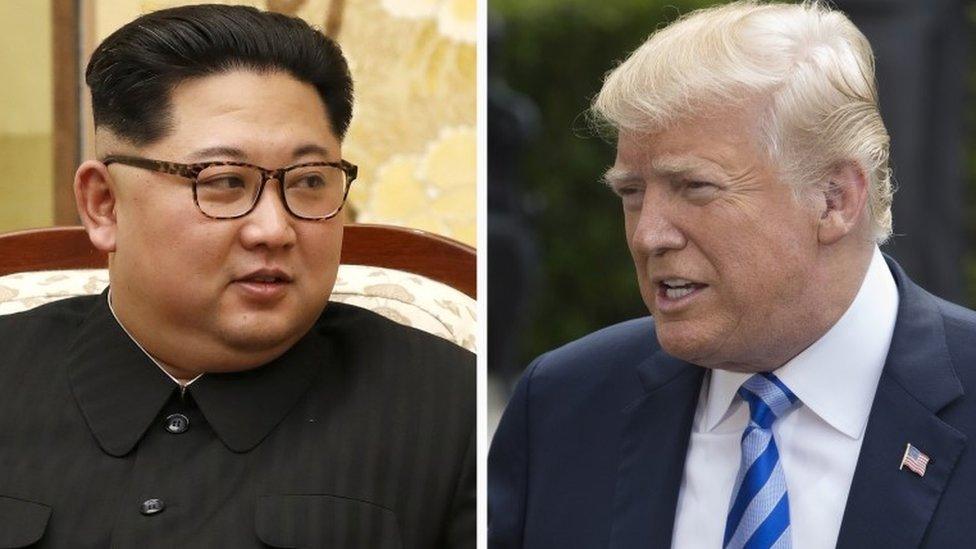Could North Korean defectors affect Trump summit?
- Published
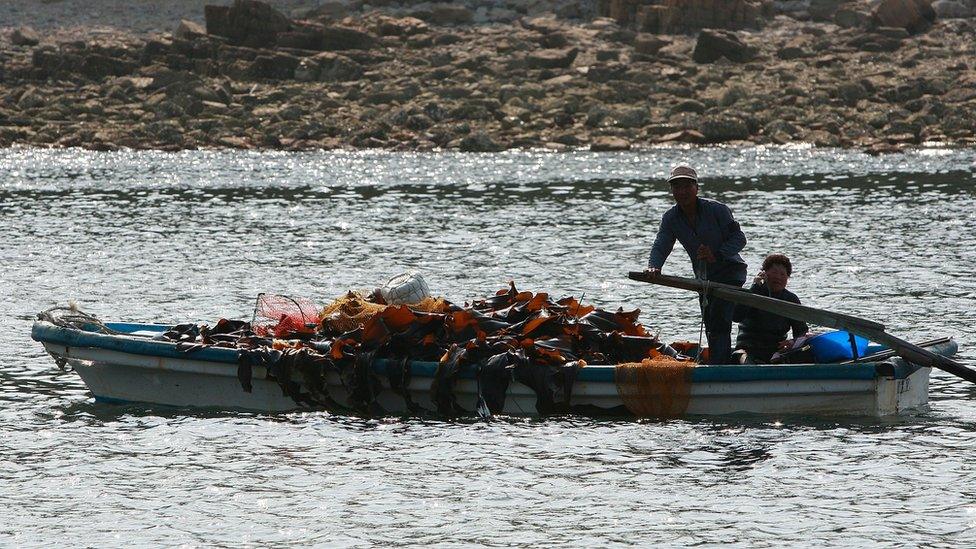
A file photo of Baengnyeong island, where the North Korean defectors were found by South Korean officials
Two North Koreans defected to the South at the weekend, highlighting an issue that has been a source of constant tension over the years.
Could the latest defection - the first since a historic North-South summit last month - have an impact on the finely-balanced 12 June summit planned between North Korea's Kim Jong-un and US President Donald Trump?
Who were the defectors and what took place?
According to Yonhap news agency, the men were spotted by a South Korean naval vessel early on Saturday. They were in a small boat in the Yellow Sea, near the western sea border which separates both countries.
The pair, said to be in their 40s, were initially described by Yonhap as a military officer and a civilian.
However, later reports said that they were in fact both civilians.
What will happen to the defectors now?
After reaching the South, it's likely they'll go through the same process as most North Korean defectors.
First they would be held at an interrogation facility to screen for potential spies, and then put through a state resettlement programme.
It is unlikely that they will be returned to North Korea. On more than one occasion Pyongyang has accused Seoul of "abducting" North Koreans - something the South denies.
Defectors from the North automatically become South Korean citizens, and it is illegal for citizens to visit the North without government approval.
This is quite different from the approach taken by neighbouring China, which often repatriates defectors from North Korea.
Has North Korea said anything?
No, not so far about the latest pair of defectors.
However, North Korean state news agency KCNA put out a strongly worded statement later on Saturday, external, demanding the return of another group of defectors - a dozen waitresses who fled to South Korea some two years ago.
South Korea claims the women, who were working in a North Korean state-run restaurant in China, defected of their free will. The North, however, insists they were lured and kidnapped.
The KCNA statement called for the women to be sent back to the North "without delay".
It also hinted that the fate of the women could affect ties between the two countries - referencing a historic summit that took place last month between the leaders of North and South Korea at the truce village of Panmunjom.
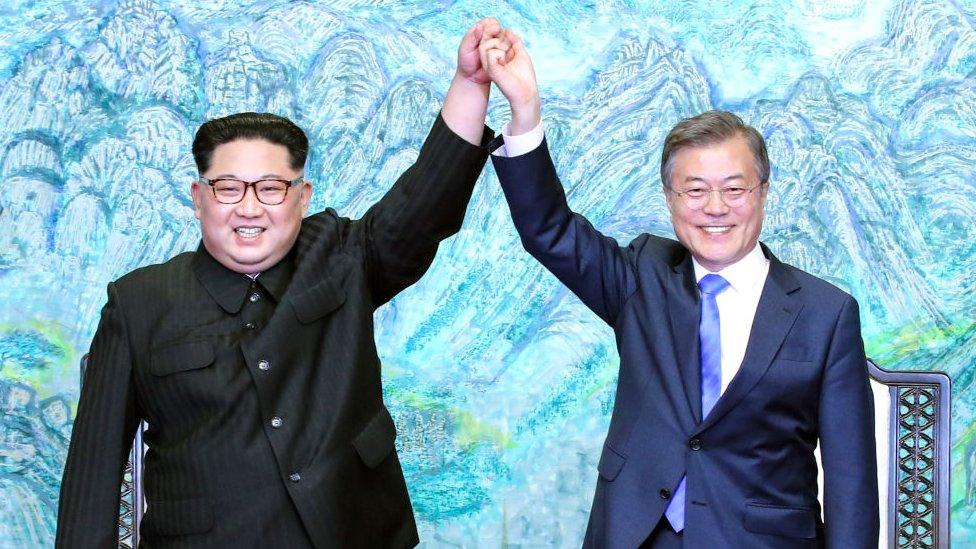
Mr Kim and Mr Moon had at a meeting in Panmunjom agreed to work towards a denuclearised Korean peninsula and a peace treaty to formally end the Korean War
"The attitude taken by the South Korean authorities even before the ink on the Panmunjom declaration got dry has greatly disappointed us," said the KCNA statement.
"We will prudently watch their future attitude."
Do defections happen often?
Last year saw one of the most dramatic defections by a North Korean to the South, when a soldier was shot at 40 times - and hit five times - as he ran across the demilitarised zone separating the two Koreas.
He was injured but eventually made it across.
The latest defections are much less high-profile, and it's not uncommon for North Koreans to defect by sea.
In June 2017, two North Koreans decided to defect to the South after being rescued from waters off the east coast of the peninsula.
A month later, five North Koreans also crossed the sea border into South Korean waters in a small boat - saying that they wanted to defect.
But not all sail into overseas waters in the hopes of defecting. North Korean fishermen have also been to known to accidentally drift into South Korean or Japanese waters - and have asked to be sent back to the North.
The number of North Koreans defecting to the South went down by 21% in 2017 compared to the previous year , external- with 2017 marking the fewest defections since Kim Jong-un took power in 2011.
More than 30,000 North Koreans have defected to the South since the end of the Korean war.
Is this defection likely to derail talks?
It is notable that this is the first defection that has taken place since the summit between North and South Korea in April - and it comes as diplomatic ties between Pyongyang and Seoul are showing signs of strain.
North Korea last week abruptly cancelled a meeting with South Korea, saying that it was angered by the South's joint military exercises with the US.
The North called the exercises a "provocation" and also warned the US a historic summit planned between Donald Trump and Kim Jong-un in Singapore could be in doubt.
But according to Dr James Kim at the ASAN Institute, there's "nothing to suggest" that the defection would derail the talks between US President Donald Trump and Kim Jong-un.
Instead, it could be used as a bargaining chip by the North ahead of the summit, he suggests.
"It could be that North Korea is trying to find some sort of edge leading up to the June meeting - be it [with] the defection, or John Bolton," Dr Kim told the BBC, referring to the US national security adviser who recently angered Pyongyang with comments about nuclear disarmament.
"If they were really threatening to cancel, they could just do that... but I think there's too much at stake for them."
- Published17 September 2017
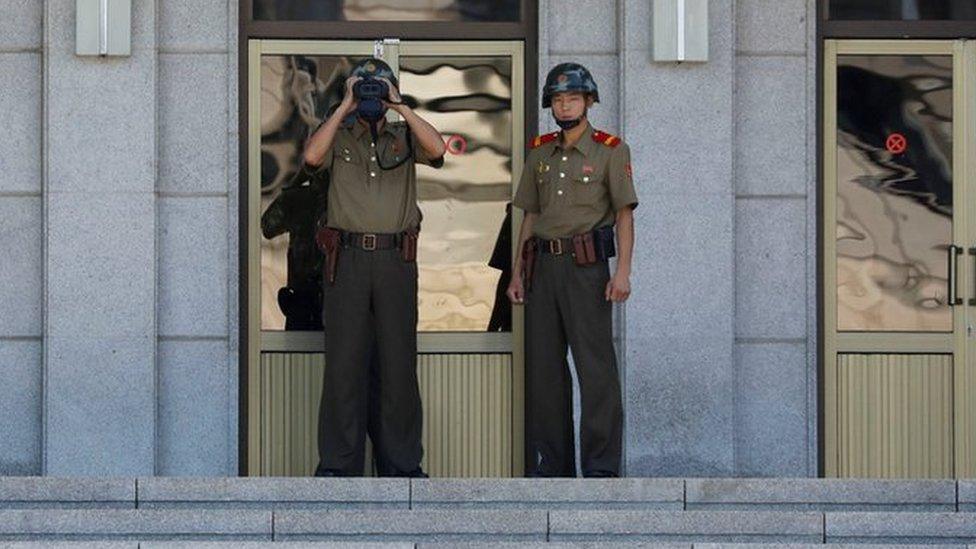
- Published14 November 2017
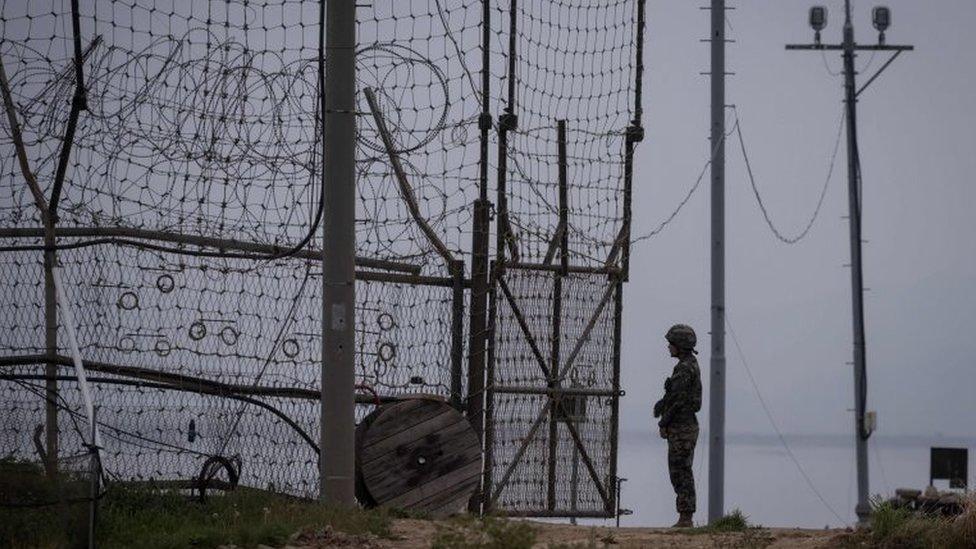
- Published15 May 2018
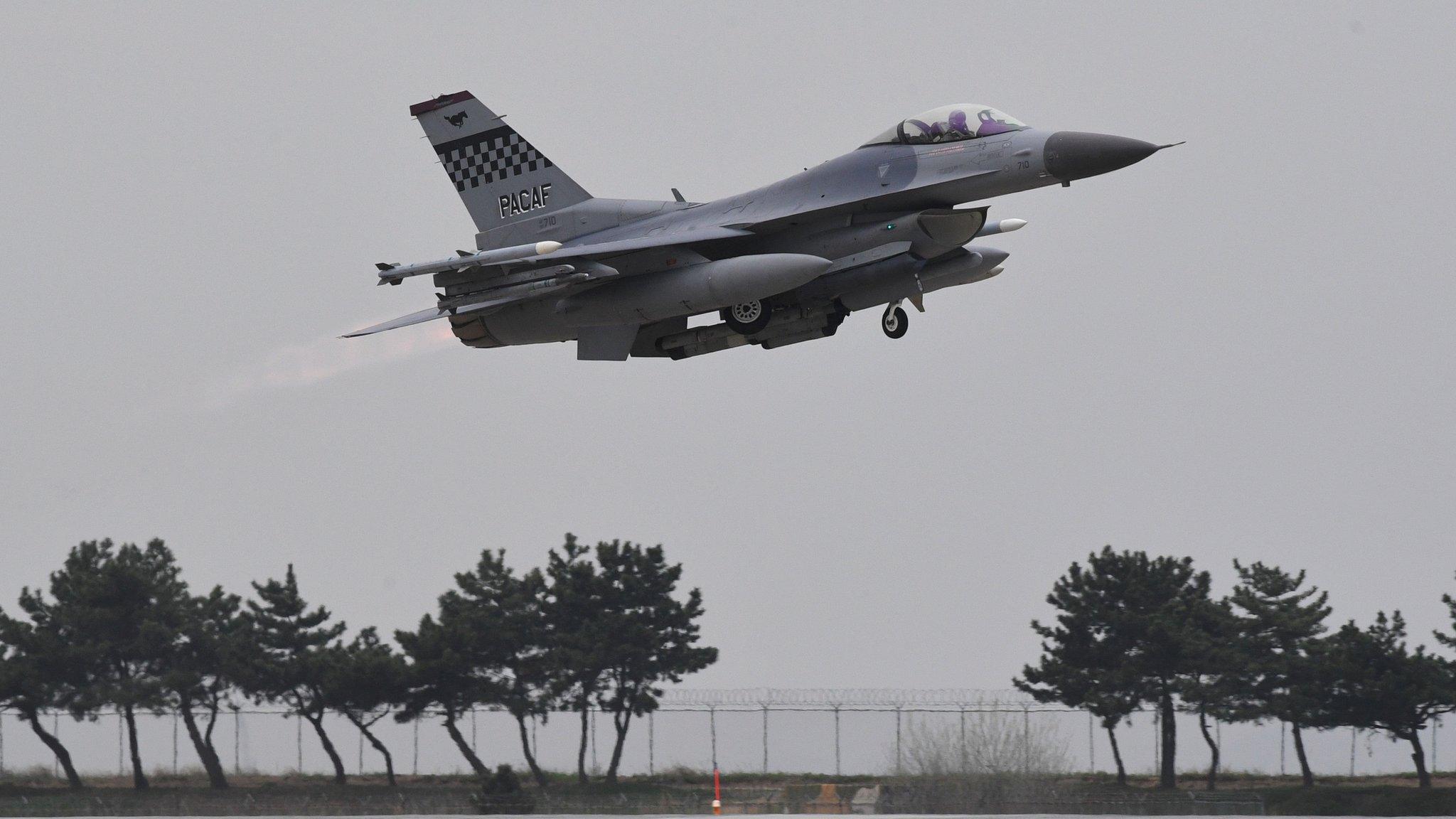
- Published16 May 2018
